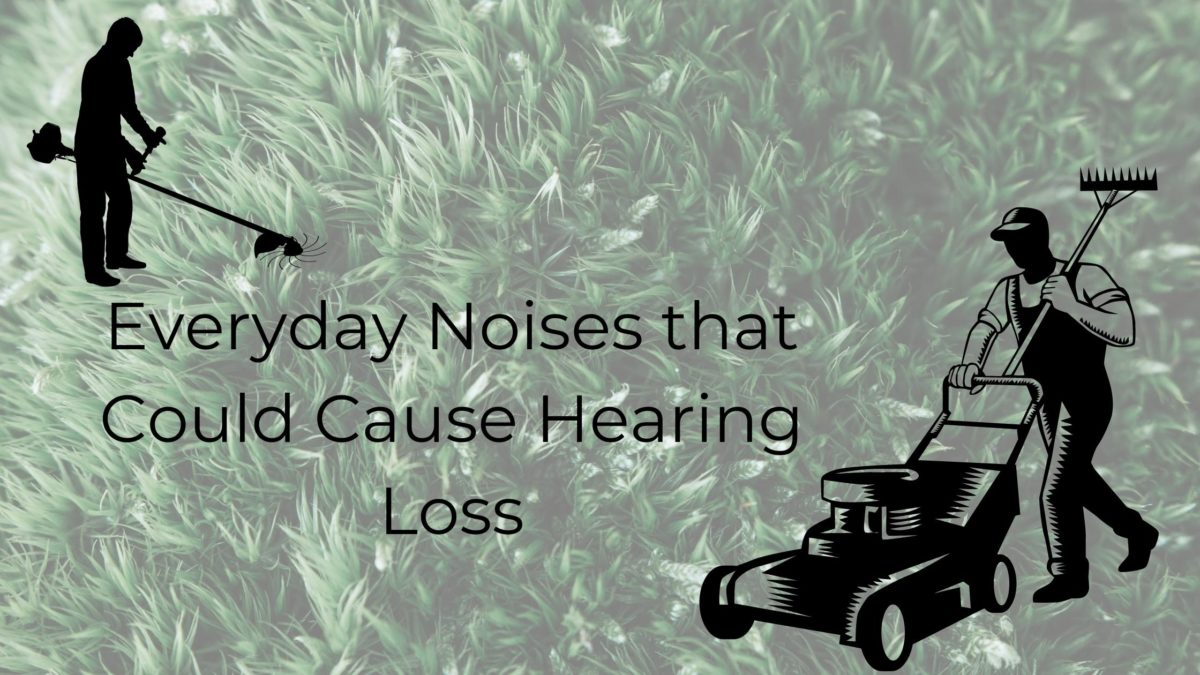You likely know that loud noise can affect your hearing. Loud noise exposure is one of the most common causes of hearing loss. But did you know that everyday noises can contribute to impairing your hearing? We are constantly surrounded by and are absorbing noise. From waking up to an alarm clock, to commuting, and listening to podcasts or music; sound shapes the environments we regularly navigate. Learning about these hearing hazards and ways to protect your hearing can drastically reduce your risk of developing hearing loss.
What is noise induced hearing loss?
Several factors can cause hearing loss and noise exposure is a major one. One time or consistent absorption of loud noise can irreparably damage the auditory system – the sensory system for hearing which includes the ears and brain working together to absorb and process speech and sound. There are thousands of hair cells in the inner ear. These sensory cells receive sound waves and convert them into electrical signals that get sent to the brain. The brain then further processes these signals and assigns meaning to them which is how we are able to understand what we hear.
Loud noise can cause these delicate and tiny hair cells to lose sensitivity, contributing to them dying over time. This damage prevents them from carrying out their essential function, resulting in the brain receiving less sound information. Unlike other types of cells we have, hair cells in the inner ear do not regenerate. Humans are actually born with all the sensory cells in the ears that we will ever have. There are also no ways to replenish these cells or correct damage they may incur which results in permanent, noise induced hearing loss.
Everyday Noises that Could Cause Hearing Loss
Noise does not have to be on the level of fireworks or sirens to damage hearing. You may be surprised to learn that seemingly quieter types of sounds can be hazardous for hearing health. Sound is measured in decibels (dB) and noise above 85dB can damage hearing. This is the equivalent of noise in a busy restaurant or busy city traffic. There are everyday noises that equal and exceed this including:
- Household appliances: there are several household appliances that you regularly use which produce noise near or above 85dB. Examples are:
- power tools: drills, chainsaw etc. put to 110dB
- blenders, food processors, juicers> up to 100dB
- lawn mower, leaf blower, vacuum cleaner, hair dryer: up to 90dB
- Social activities: various leisure activities and social engagement can also reach and surpass 85dB. This include:
- noisy restaurant, bar, party: 85-90dB
- watching a game in a stadium, attending a concert in an arena: up to 110dB
- Listening to Audio: listening to music or podcasts via headphones or earbuds can get up to 100dB at the highest volume setting.
Reducing your exposure to these noises is an important way to protect your hearing.
Tips to Prevent Hearing Loss
The great news is that noise induced hearing loss is totally preventable. There are several effective ways you can protect your ears and hearing from loud noise. A few useful tips include the following
- Wear hearing protection: there are various forms of protective wear for the ears: headphones, earmuffs, earbuds etc. This provides a barrier for the ears which blocks loud noise, reducing the amount and impact of excessive noise that is absorbed. Earbuds are small enough that they are highly portable so carrying a pair is a great way to easily access them in any loud setting you may be in.
- Reduce exposure: in addition to wearing hearing protection, there are more ways you can reduce your exposure to loud noise. This includes maintaining lower volume levels while listening to music or watching TV, avoiding noisy settings like restaurants during peak hours, taking different routes to avoid traffic etc.
- Take breaks: because we are constantly exposed to and absorbing sound, taking listening breaks throughout the day is a helpful way of giving the auditory system time and space to replenish. You can do this by powering off any sources of sound and simply being in a quieter setting.
In addition to these tips, it is important to have your hearing checked regularly. This involves having your hearing tested by a hearing healthcare specialist. Hearing tests involve a painless process that measures hearing abilities in both ears. This establishes your hearing needs and informs the best route for treatment.
Contact us today to learn more about the ways you can protect your hearing health. We can also schedule an appointment for a hearing consultation appointment which is a great way to be proactive about your hearing health.

